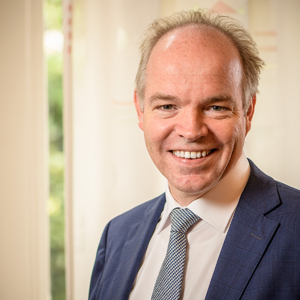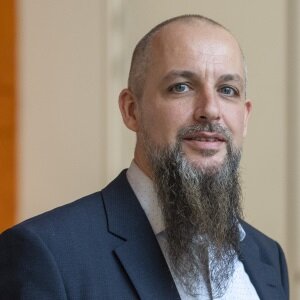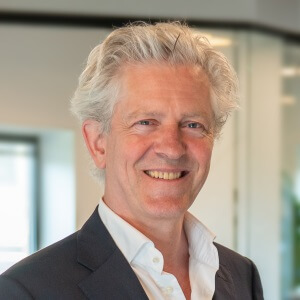
Although it’s something you don’t think about every day, patent and trademark law is also constantly changing. We talked to Chairman Herman Witmans. He looks to the future with an open mind.
Witmans took up his position as Chairman on 1 September 2019. Originally a mechanical engineer, Witmans started at V.O. some 30 years ago as a trainee patent attorney. He is now taking over the baton from Cees Jansen and chairs the general meeting of shareholders where the outlines for the coming years are set out.
What are the developments in your market?
“I see that the market is becoming increasingly competitive. As is the case in many markets, new firms regularly pop up that focus on specific services and have competitive prices. We are particularly noticing newcomers in the standard administrative service. For instance, they look after the administration and payment of maintenance fees or focus on validating European patents in various countries after they have been granted.”
What exactly is V.O.’s added value in your opinion?
“Our clients have a particular need for high-quality, professional advice. They look for the best possible protection for their intellectual property. That’s our core business. The description and protection of intellectual property is based on an excellent relationship of trust with the client. Our patent attorneys know the business of their clients. They often have valuable, durable working relationships that continue for a long time.”
Do you expect any changes in the near future in terms of legislation?
“That is always a possibility. The Unitary Patent and the Unified Patent Court have been in the making since 2012. The Unitary Patent is an alternative to the current European patent. They can exist alongside each other. When this Unitary Patent and the corresponding European patent court do actually enter into force, patent firms will notice the effects in their service. European patents are currently broken up into various national patents. However, this is not the case for a Unitary Patent. This means that there is no need to register the European patent with the national patent offices, and to submit a translation where this is required. So when the new unitary patent system enters into force, it will have an impact on our business. It’s impossible to predict whether the new system will actually enter into force in the near future. We first need to wait for a decision by the German Constitutional Court. Very recently, the UK government has indicated that it will not participate in the Unified Patent Court system. This means that the treaty must be amended. This change requires renegotiation between the remaining contracting states and the outcome thereof is unclear, as is the time it will take.”
But are you prepared for this?
“Yes, of course. A working group at V.O. has been keeping a close eye on the developments for a long time. We have a contingency plan which we can use to inform our clients immediately, when the time comes. We also see it as an opportunity for our clients because they will be able to apply for a patent for more subject matters with the same budget.”
What will you be focusing on in the coming years?
“We have expanded over the last few years, with more offices in Europe. This means that our network is larger and we are always near our clients. We recently opened an office in Liège, so we can also serve the French-speaking regions. Over the coming years we will be further strengthening our offices with patent attorneys from different university backgrounds. As I mentioned, our work remains a specialism where content-related knowledge, trust and personal contact are decisive factors.”
Which new services will you be surprising your clients with?
“We have a solid foundation for the future, as the protection of intellectual property remains our core activity and the demand for this will certainly not decline. However, we are not standing still. Clients are increasingly asking us to contribute ideas for protecting their intellectual property at an early stage, the brainstorming phase. This also frequently involves the protection of know-how. Keeping the know-how that is freely available to staff members a secret, is currently often regulated in an employment contract in an extremely general fashion. We think that a specific description of the confidential know-how may be of great value if this is disputed at a later date. V.O. is able to provide clients with an excellent service for recording their confidential know-how due to our expertise in the description of technical processes and products.
It is always of the utmost importance to think along with our customers in creating the best possible protection for their developments. It is with good reason that our motto is activate your ideas.”

